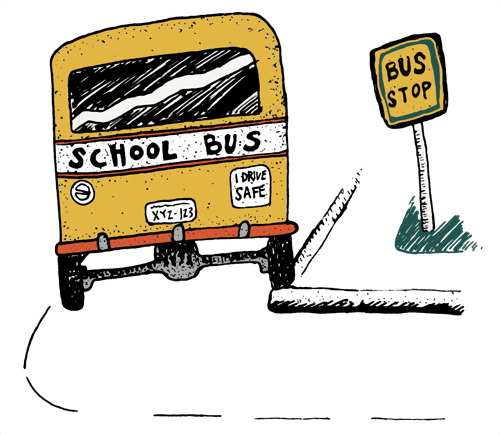What is it about anxiety and its uncanny ability to crash in at the worst possible time? Things seem fine leading up to school and you are in the drop-off line or your child is about to board the bus and all of a sudden…PANIC! Or you finally drift off to sleep exhausted only to be startled awake by your child standing over you tearful and anxious. You’re late for work, the baby is crying, you have a 20 pound backpack in one arm, a bagel that fell on the floor in the other, you can’t find your shoe and this is the moment your child goes prehistoric? Is it me or does anxiety seem to find its way to the cracks in life where there are little or no margins?
I suppose it can happen at other times but the impact on you and your family is most pronounced in those moments where there isn’t the time, energy or a backup plan available. Enough of these moments and you may feel like you cannot take it anymore. This may be especially relevant because anxiety rises dramatically at the beginning of the school year and after any holidays or vacations. The longer the break, the stronger the anxiety is often the way it goes.
Why is it that anxiety tends to spike at certain times? Here are a couple thoughts about that followed with some suggestions.
The Good and the Bad of Avoiding. Most of the time when we get fearful or anxious it is because there is actually something potentially threatening. The forceful urge to escape or fight back is fundamental to a safe and healthy life. As important as anything I ever taught my children was being able to recognize and respond appropriately to potential harm/danger. I think 90% of what came out of my mouth for at least 15 years was, “Stop, watch out, don’t touch that, be careful, sharp, fire, electricity, etc.” Please God, help my children to recognize when people are dangerous! Stranger danger! Avoiding people, places and things that could harm is essential to

Illustration by Lindsey Russ
navigating through life.
This very urge to be safe is the loop hole an anxiety “disorder” exploits to cause the whole system to go haywire. This forceful built-in warning system that keeps us out of trouble (mostly) becomes a major part of the problem when anxiety gets out of control. When we mistakenly think something is more dangerous than it actually is, the same forceful urge to avoid becomes a problem for three reasons. 1. If we mistakenly think we have to actually avoid then it confirms our opinion something is threatening. 2. We have a huge and reinforcing sense of relief that we have “escaped” when we avoid it. 3. We never have the experience of discovering that either it wasn’t as bad as we thought and/or you were able to handle it. These become the cycle that builds into a disorder.
So that was a rather long explanation to say that the longer something is avoided the higher the anxiety when it is time to face it. School being the perfect example of this. I just can’t overstate how powerful the urge to avoid is. If you have an anxious child who is triggered by school, then your child will find all kinds of ways to try to avoid it. Here is the thing. So will you. You may find yourself avoiding talking about it until the last moment. No one wants to poke the bear.
This is sometimes why there are those worst possible moments. Everyone has their fingers crossed that anxiety will not show up but when it does everyone is frustrated, upset and without many options. I have a few suggestions that might help with this a bit.
Respect the Biology. If you want to see your child transform into a completely unrecognizable wild creature, then trigger the fight or flight response while trying to force them into the situation they are scared of. Can I just tell you that all reason, propriety and basic civilization will be completely absent from your child and possibly yourself? You won’t recognize the 70-pound animal foaming at the mouth in front of you. If you get mad and push harder, you might as well stand on the beach during the next hurricane. Here is my point. Don’t wait until the last minute to deal with something. If you think your child will get anxious isn’t it better to dish it out in small doses to get him or her used to something? My nephew, Garrett Glaus, gave me a great analogy for this. He said anxiety is like an allergic reaction. Your body freaks out about something that should be relatively harmless. The treatment is to get small doses of the allergen over a period of time until your body gets used to it. The equivalent psychological process is called graduated exposure.
Sometimes People Don’t Snap Out of It. Anyone raising children knows that kids get anxious about stuff and then they seem to work through it and life goes on. We all hope that this is the case and it is a pretty good rule of thumb particularly at the beginning of things. We all also know that it requires us to put some pressure on our kids to make them do things they don’t want to do. That is just the nature of parenting. Seriously, this is how it works most of the time. However, you have to accept it when you realize this is NOT one of those times. The sooner you adjust your approach and expectations the better. I can’t tell you how to know it has gone from “get your butt in the car” to “oh crap, I can’t control my child at all.” If you realize this has gone from “normal mayhem” to “we have a serious problem” then stop with all the “get over it” stuff and step back. You need a plan that will require time and energy. Your child is not a wimp or a person of poor character. What you must realize is that if there was an actual danger what your child is doing would thrill you. Your child is genuinely trying to solve what seems like a huge problem and simply going with the biological fight or flight response. What is needed is the right kind of information to correct the system. Look, I know I want to hit my computer with a hammer, but what I actually need is correct information. (Or a reboot.) If you can’t depend on the normal process of growing up and figuring stuff out then you need to go out of your way to find out how to correct the problem. The sooner the better.
Anxiety is Tough But the Sky is NOT Falling. Depending on a lot a factors, treating anxiety disorders can range from relatively easy to stubborn as a grumpy old man (oh wait, that is me). Nevertheless, there are very effective treatments and there is reason to be hopeful. In my experience, kids with determined parents do great with treatment. Treatment requires motivation and doing something opposite from our natural biological response so it helps if a parent(s) is engaged for those challenges that, left alone, a child would completely avoid. Remember, your child’s life is not ruined. This doesn’t mean you are a complete failure as a parent. STOP. Find the resources and information and get your child help. It will probably involve some trial and error and may take some time. I can say this both as dad and psychologist; been there, done that.
Be Mad, be Embarrassed, Then Move On. If you haven’t had a “Why me!” moment then you are lying to yourself. I know an anxious kid is not part of the imagined happy family you had in mind. I don’t mean to make light of it. It is genuinely agonizing. I am a psychologist. Anxiety was something I helped people with. I remember the shocking moment with my own child when I realized, “I don’t know what to do.” I used up all my bag of tricks and my daughter’s anxiety just kept getting worse. Protest can have its place but when you realize this is our reality and protest is useless, then it is time to move to acceptance. Staying mad just hurts you.
Let’s be honest, we are all really judgmental of other people’s parenting. If you are out to eat at a nice restaurant and some kid is crying, you know you are thinking, “What is wrong with those parents?” “Why don’t they take that baby outside?” So, we all imagine, and maybe there is some truth to it, that other people are thinking, “Your kid is anxious because you are a crappy parent.” This is when we all wish their child was anxious so they would shut up. Are you a crappy parent? Probably, sometimes, in your worst moments. We all have our flaws. That being said, anxiety disorders are not due primarily to crappy parenting. Mostly, it is a combination of many things and in most studies the parenting is not the major factor. You have to make peace with knowing you are doing the best you can and that the critics can put a sock in it. If you don’t find a way to get past the anger and embarrassment, then you will be much more reactive when the anxiety shows up. You probably know by now how well that goes over…..
Anxiety is Part of Life. Your child (and you) will never be free of anxiety. Anxiety disorders sometimes make people afraid of any and all anxiety. Anxiety is part of how we operate just like sleep and eating. Usually the system works really well. Sometimes it just gets too strong or is sending off false alarms. Your child will spend a sizable part of life dealing with obstacles and learning how to handle difficult emotions. This is your chance to help your child learn something that will matter for her or his whole life. If you were anxious as a kid and you didn’t get help, then this is your chance to stop that cycle. There are tons of resources available now that were not present 20+ years ago. Anxiety disorders have their own unique set of rules and you will need to figure that out to help your child figure it out. Don’t avoid it. Your child needs to know that you are on the case and that you will get through this together.

 David Russ
David Russ